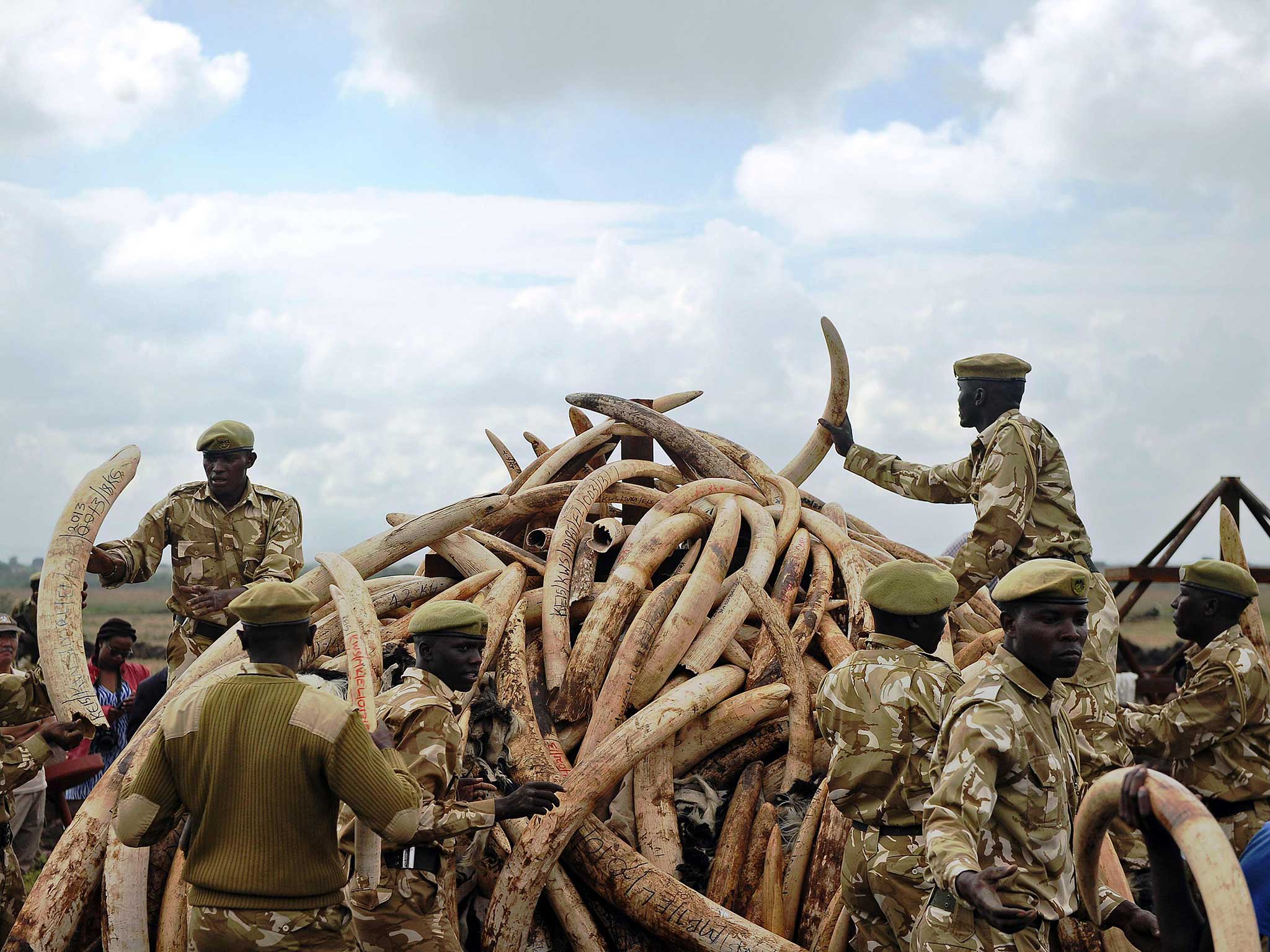Illicit wildlife trafficking is about people - they alone can fix it
The latest CITES meeting on 24 September in Johannesburg will be one of the most critical meetings in the Convention’s 43 year history


The evils of the international drug trade, weapons smuggling, and human trafficking are well known. Drug turf wars devastate neighbourhoods while addicts leave behind the shattered lives of their families. The illicit weapons trade arms terrorists, brutal militias, and street gangs, while people smugglers fill leaky boats with desperate refugees and brothels with enslaved sex workers.
Yet few bother to think of the illicit trade in wildlife and the devastation it causes, even though it ranks up there with the trade in drugs, guns, and human lives, reaping in the order of $20bn a year. The impact is disastrous, causing immense suffering to animals and people and destroying ecosystems.
It is the slow, lonely death of a rhino with its face hacked off by poachers who have taken its horn for distant markets, or the carcasses of an elephant family mown down with automatic weapons for their ivory and left rotting in the sun. It is the industrial-scale illicit harvest of the pangolin—the world’s most trafficked mammal—for its meat and scales.
Wildlife trafficking is driving some of the world's most iconic species, as well as those you may never have heard of, towards extinction.
The good news is that we can stop this through persistent and collective efforts.
There is a strong and long-standing global collaboration that exists through the Convention on International Trade in Endangered Species of Wild Fauna and Flora (CITES). The latest meeting on 24th September in Johannesburg will be one of the most critical meetings in the Convention’s 43 year history.
Much of the international attention will focus on the ivory of the African elephant and the horn of the Southern White Rhinoceros, and on combating their illegal trade, as the recently released African elephant survey showed serious declines in the savanna elephant population of over 100,000 since 2007 – this reinforces the urgency of the situation.
But elephants and rhinos will be sharing the headlines with robust debates on CITES trade controls of species as diverse as baobabs, frogs, geckos, lions, pangolins, rays, rosewood, and sharks, and all for the first time against the backdrop of the United Nations’ Sustainable Development Goals.
Since the mid-1970s, CITES has regulated the global marketplace for wild animals and plants, ensuring that international trade in species is legal, sustainable, and traceable and that commercial trade is allowed only where it presents no threat to a species’ survival.
While commercial trade is prohibited in some species due to their conservation status, the well-regulated international commercial trade in some species—such as the legal trade in alligator and python skins, the meat of the queen conch, the wool of the vicuña, and the bark of the African cherry tree—can have benefits for both wildlife and people.
The unity of our collaboration within and outside of the UN achieved over the past five years means that today we are confident that the world is united in its understanding of both the scale of the threat and how to tackle this illicit wildlife trafficking. The global response is taking place with a clear legal framework of action provided by CITES and its 182 members.
We know that this action has to be for the long term. We have the regional enforcement networks and the International Consortium on Combating Wildlife Crime, bringing CITES Secretariat, INTERPOL, UN Office of Drugs and Crime (UNODC), the World Bank and the World Customs Organisation together to provide coordinated enforcement support.
In addition, there is a new financing mechanism through a “Global Partnership on Wildlife Conservation and Crime Prevention for Sustainable Development”. In this the UN Development Programme (UNDP) is working closely with the Global Environmental Facility (GEF), the World Bank, the UN Environment Programme (UNEP), Asian Development Bank, International Union for Conservation of Nature, and the World Wildlife Fund in ensuring that much needed financial and technical support gets to the ground. Further exciting United Nations agency collaborations are in development.
These highly complementary and related initiatives are seeking to fight wildlife crimes through enforcement support from source through to destination, targeted demand reduction measures, and by ensuring local communities benefit from the wildlife they live amongst. And it is having an impact on the front lines where it matters most—be it in the field, in the court room, at national borders, or in the illicit markets.
Illicit wildlife trafficking is about people—people drive it through greed, ignorance, and indifference, people suffer from it, and people alone can fix it. Like other illicit trafficking, wildlife crime greases the palms of corrupt networks, draws upon over-stretched law enforcement, and robs ordinary people and communities in poorer countries of jobs and their governments of money. Armed and hardened poaching gangs add to insecurity in places where a lack of the rule of law allows these crimes to flourish.
Since the last conference, in Bangkok in 2013, there have been a number of very high-profile gatherings adding momentum to the global campaign against the scourge of illicit wildlife trafficking. This unity of purpose, together with widening the deployment of proven tactics to fight serious crimes, gives us confidence that the transnational organised criminal groups driving this industrial scale illicit wildlife trafficking can and will be beaten.
Helen Clark is the Administrator of the United Nations Development Programme (UNDP) and a former Prime Minister of New Zealand.
John Scanlon is Secretary-General of the Convention on International Trade in Endangered Species of Wild Fauna and Flora (CITES).
Join our commenting forum
Join thought-provoking conversations, follow other Independent readers and see their replies
Comments
Bookmark popover
Removed from bookmarks